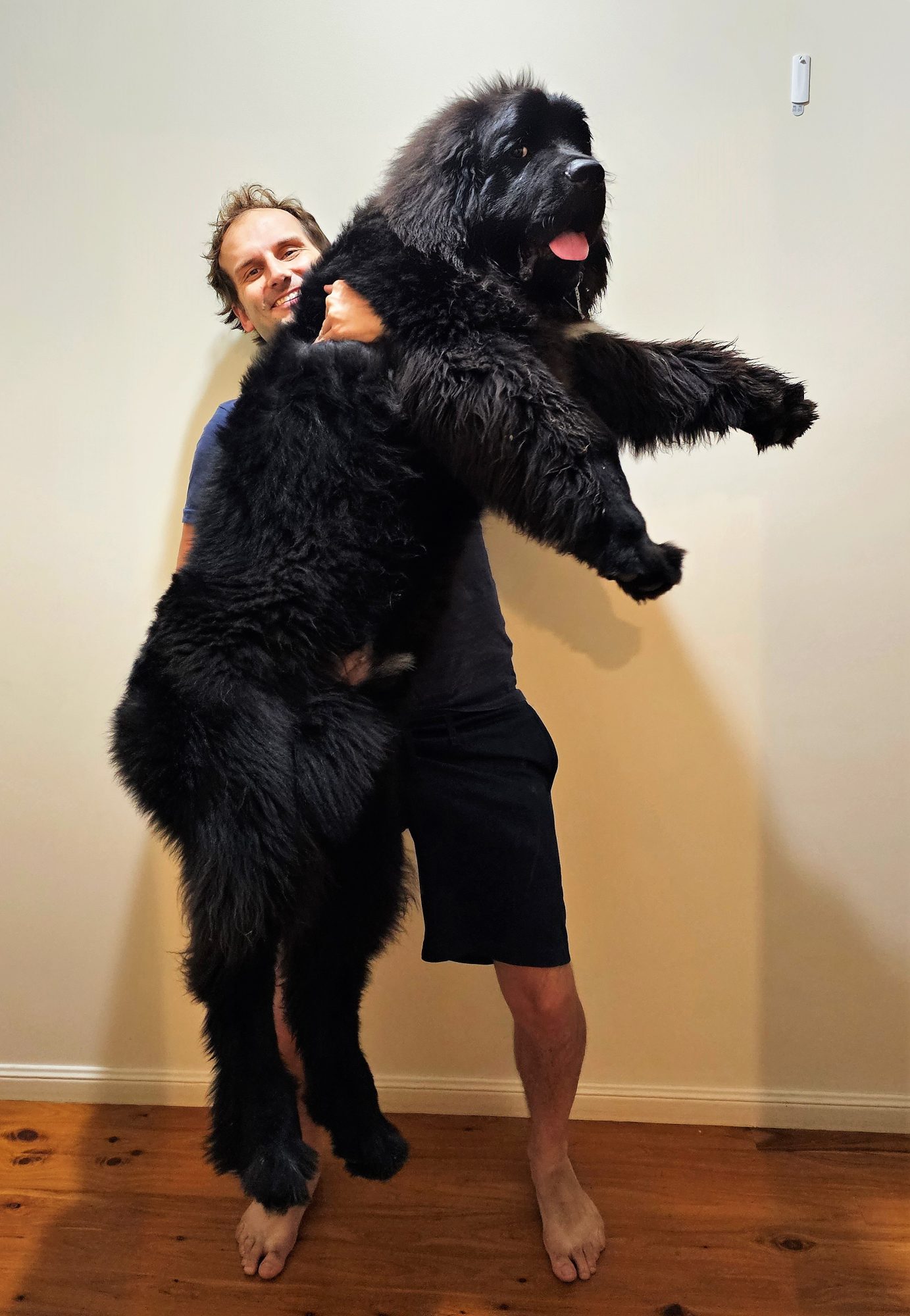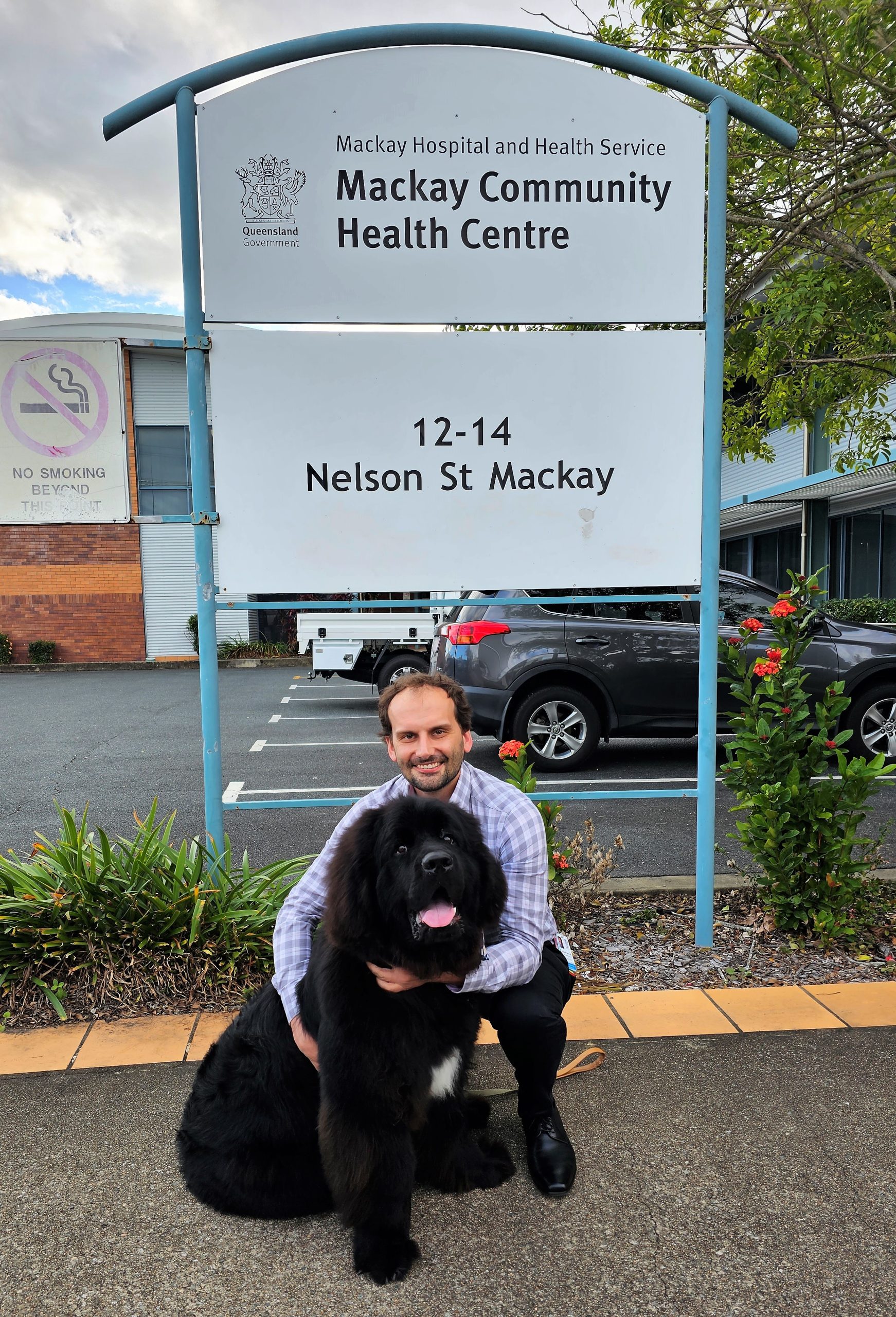Graham Pasternak first scrubbed up to assist during surgery at the tender age of nine.
His father, a doctor, had decided to spend six months working on the island of Tanna in Vanuatu.
“My parents are usually quite conservative, in terms of risk-taking, but they decided last minute – ‘let’s go to Vanuatu for six months’,” Dr Pasternak said.
“My dad encouraged all of us to be a part of the rounds, but my brothers were turned off by it, and so I became the main surgical assistant.
“The people there called me ‘Small Dokta’.”
The Pasternak family were based in the city of ‘Medicine Hat’ in Alberta, Canada so perhaps it’s no surprise that all four children followed in their father’s footsteps.
Dr Pasternak, who had initially considered a career as a pilot, has just reached a significant milestone in his medical career, after an incredible eighteen years of study.
On June 30 he completed his psychiatry fellowship with the Royal Australian and New Zealand College (RANZCP) here at Mackay Base Hospital.
“If you told me out of high school, I think maybe I’d try a second time to be a pilot.”
After initially completing a degree in Biology and a Masters in Psychology in Canada, Dr Pasternak moved to Australia to study medicine at the University of Queensland.
He then had his heart set on doing his intern year in Mackay.
“I wrote a letter begging them to take me on,” Graham said.
“Mackay is strongly resource-based, which is similar to Medicine Hat, so I know about the impacts that has on people and families.
“It’s got the ‘Goldilocks’ weather – not too hot, not too cold.
“Mackay had a new hospital, and it was mentioned that it was going to be one of the first to go digital – so tick, tick.
“And without sounding clichéd – it really seemed that staff wanted to look after us.”
He commenced his internship in 2016.
Following that, when an opportunity arose to step into the field of mental health and complete a psychiatry fellowship here, he seized it.
“In mental health, you’ve really got to understand why things are happening, why people are presenting the way they are,” he said.
“The sum of the stories that people come with and the resilience they’ve had in their lives to get them to this point is actually very amazing.”
Doctor Pasternak paid tribute to a number of mentors along the way.
“I had really strong mentorship from my first supervisor in mental health, Ashish Rana, and I don’t want to miss anyone out, but I’ve been supported so much by Cathy Roberts and Stephen Lambert,” he said.
Now that the study is at an end Dr Pasternak has some valuable time to spend on his great loves – wife Shelley, exploring the beautiful region he now calls home, and a gentle giant named ‘Indaweh.’

“I’m getting used to having weekends again,” he said.
“We like travelling around and we have a new dog.
“He’s a Newfoundland, which is a Canadian breed,” he said.
“He’s still a puppy, just seven months old and he weighs 50 kilos.
“His name is a play on words; because he’s so big, he’s always ‘In da weh’.”
Congratulations Dr Pasternak on your achievements and thank you for the work that you do in our health service.



